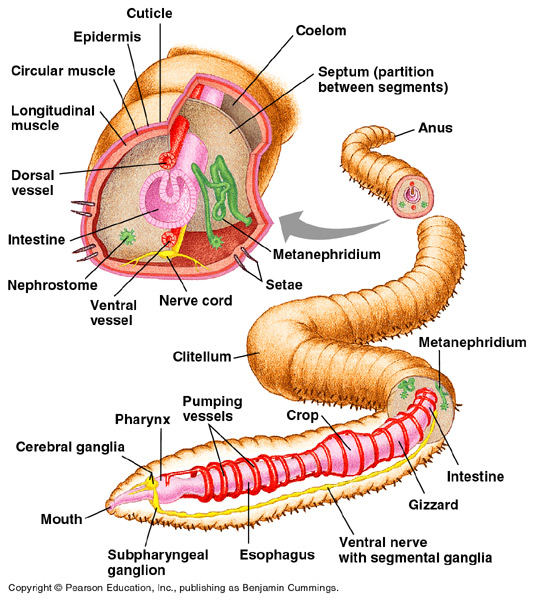Eisenia fetida is an invertebrate belonging to the phylum of Annelida. This creature is long (up to 3 meters!), pink and slimy - and loves humidity. They are hermaphrodites, still, they won't do all the work themselves: they need a mate, to mate.
The anatomy shows the body is formed of segments that become specialized towards the anterior part. Their alternating red and buff stripes can differentiate it from other worms. It has a simple closed circulatory system and two main blood vessels. The digestive system is present within the tube.
And here comes the hotspot!
This composting machine starts in the first body segment, which features both the earthworm's mouth and a fleshy lobe called the prostomium (it seals the entrance when the worm is at rest but is also used to feel and chemically sense the worm's surroundings!). After the mouth, food enters this long tube embraced by vases and muscles (which is virtually divided in oesophagus and proper intestine).
If you look at the picture down here, you'll quickly realize how hulky the intestine is. The process is then quite the same as ours, but worms are provided with an additional class of enzymes to digest the polyphenols in plants.
So, how is this good for our compost?
First of all, they eat almost all organic materials (avoid lemons! They're toxic to your new sidekick!); second, they process food to give plants a fine-quality fertilizer. Third, they tunnel through your compost and help aerate the pile. That makes it easier and faster for the beneficial bacteria to grow and break down scraps and debris you are composting.
Summarising, this little helper will feed our garden with super poo... Isn't nature amazing?
